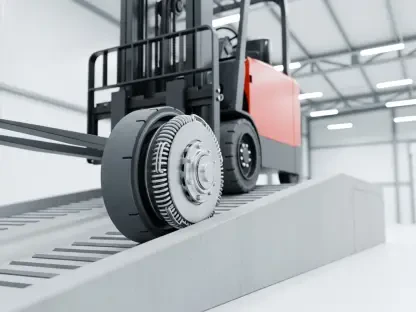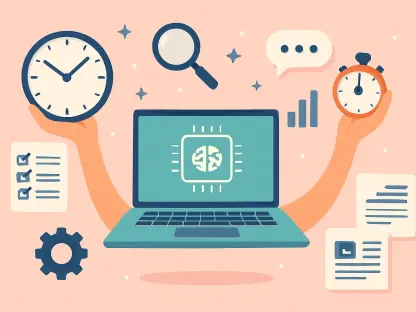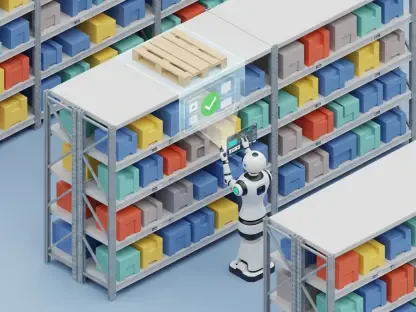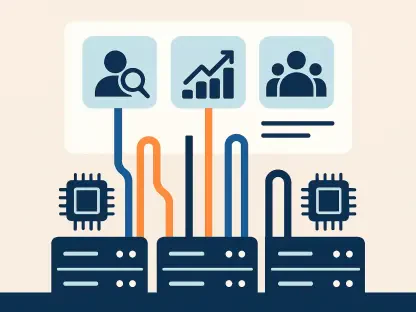I’m thrilled to sit down with Marco Gaietti, a veteran in business management with decades of experience in strategic operations and technology integration. Marco has been closely involved with innovative solutions in warehouse management systems, and today we’re diving into the exciting launch of Astrid, a Generative AI-powered Assistant by Consafe Logistics. Our conversation explores how Astrid transforms user experience with Astro WMS®, the technology behind it, its impact on efficiency and onboarding, and the vision of blending human expertise with cutting-edge AI. Let’s get started!
Can you share the story behind the creation of Astrid and what drove Consafe Logistics to develop this AI-powered Assistant?
The idea for Astrid came from a deep understanding of the pain points in warehouse management. We saw that users often struggled with complex setups, troubleshooting, and navigating systems like Astro WMS®. The goal was to create a tool that could simplify these processes, save time, and let people focus on core operations. We wanted Astrid to be a virtual guide, available 24/7, to empower users with instant support and reduce dependency on traditional help desks.
What specific challenges in warehouse management systems were you aiming to tackle with Astrid?
One major challenge is the complexity of configuring integrations with external systems like ERP or transport solutions. These setups can be daunting, especially for new users. Additionally, troubleshooting issues often meant long wait times for support, which disrupts operations. Astrid addresses these by offering step-by-step guidance and quick resolutions, minimizing downtime and frustration in high-pressure warehouse environments.
How did the concept of integrating AI into this solution come about?
AI, particularly Generative AI, felt like a natural fit because of its ability to understand and respond to natural language queries. We realized that a tool powered by large language models could not only provide answers but also adapt to user needs in real-time. It was about making technology feel accessible—almost like chatting with a knowledgeable colleague. This approach allowed us to build a solution that’s both powerful and user-friendly.
In what ways does Astrid enhance the user experience with Astro WMS®?
Astrid acts as a personal assistant for users, simplifying everything from system setup to daily operations. It helps with configuring workflows, managing settings, and even integrating with other systems. The beauty is in the immediacy—users don’t have to dig through manuals or wait for support. Astrid provides clear, actionable advice on the spot, making the whole experience smoother and less stressful.
Can you provide a real-world example of how Astrid saves time for someone using the system?
Absolutely. Imagine a warehouse manager trying to set up a new integration with a transport solution. Normally, they might spend hours searching for documentation or waiting for a support ticket to be resolved. With Astrid, they can ask a simple question like, “How do I connect this system?” and get a detailed, step-by-step response in seconds. That kind of speed can turn a multi-hour task into something that takes just minutes.
What kind of technology drives Astrid, and how does it support complex tasks like troubleshooting?
Astrid is powered by advanced large language models, or LLMs, which are trained to process and generate human-like responses. This tech allows Astrid to understand nuanced questions and provide tailored guidance, whether it’s troubleshooting a glitch or setting up an integration. We’ve also layered in our own warehouse management expertise to ensure the responses aren’t just generic but specific to the logistics context, making them highly relevant and practical.
How does Astrid ensure that users receive consistent and reliable answers every time they interact with it?
Consistency comes from the way the LLM is trained and fine-tuned with our domain knowledge. Unlike human support, which can vary based on the person or their experience, Astrid draws from a standardized knowledge base that’s continually updated. This means whether you ask a question today or next month, you’ll get the same high-quality, accurate response, reducing the risk of errors or conflicting advice.
How does Astrid help new employees who are just getting started with Astro WMS®?
Astrid is a game-changer for onboarding. It serves as the first point of contact for new team members, offering clear explanations and walking them through the system’s features. Whether it’s learning how to navigate the interface or understanding specific workflows, Astrid provides bite-sized, easy-to-follow guidance that builds confidence and helps them get comfortable with the system much faster.
Have you seen a noticeable impact on how quickly new team members adapt with Astrid’s support?
Definitely. We’ve observed that new users ramp up significantly quicker with Astrid. What used to take weeks of training and shadowing can now be condensed because they have instant access to answers. It’s not just about speed—it’s also about reducing the overwhelm. New employees feel supported, which boosts their morale and productivity from day one.
Why was it a priority to make Astrid available in multiple languages?
Logistics is a global industry, and our users are spread across different regions with diverse linguistic needs. Making Astrid multilingual ensures that everyone, regardless of their location or native language, can access the same level of support. It breaks down barriers, fosters inclusivity, and allows teams in different countries to work with the same efficiency and confidence.
How does Astrid’s language support benefit teams operating in various regions?
It’s a huge advantage for multinational operations. A team in Europe, for instance, can interact with Astrid in their local language just as easily as a team in Asia. This eliminates the need for translation delays or misunderstandings that often happen with centralized support. It creates a unified experience, ensuring that no one is left behind due to language constraints.
Can you elaborate on how Astrid boosts efficiency in warehouse operations?
Astrid streamlines operations by cutting out the bottlenecks that slow things down. Users can resolve technical issues or get guidance on configurations without pausing their work to wait for help. This means less downtime and more focus on critical tasks like inventory management or order fulfillment. It’s all about keeping the workflow moving seamlessly.
In what ways does Astrid help minimize errors compared to traditional support methods?
Traditional support often relies on human interpretation, which can lead to miscommunication or inconsistent advice. Astrid, on the other hand, delivers precise, standardized responses based on a robust knowledge base. For example, if someone’s setting up a workflow, Astrid ensures they follow the correct steps every time, reducing the chance of costly mistakes that could disrupt operations.
The vision at Consafe Logistics is to combine human expertise with intelligent technology. How does Astrid embody this philosophy?
Astrid is the perfect blend of tech and human insight. While it’s driven by AI, it’s built on decades of warehouse management know-how. It’s designed to feel like a trusted advisor—intuitive and supportive—while leveraging technology to provide speed and scalability that a human team alone couldn’t achieve. It complements human expertise by handling routine queries, freeing up people to focus on strategic decision-making.
What’s your forecast for the role of AI-powered tools like Astrid in the future of logistics?
I believe AI tools like Astrid are just the beginning of a major transformation in logistics. Over the next few years, we’ll see even deeper integration of AI into everyday operations, from predictive analytics for inventory to real-time decision-making support. The focus will be on creating systems that not only solve problems but anticipate them, making warehouses smarter and more adaptive. Astrid is a stepping stone to a future where technology and human ingenuity work hand in hand to drive unprecedented efficiency.









